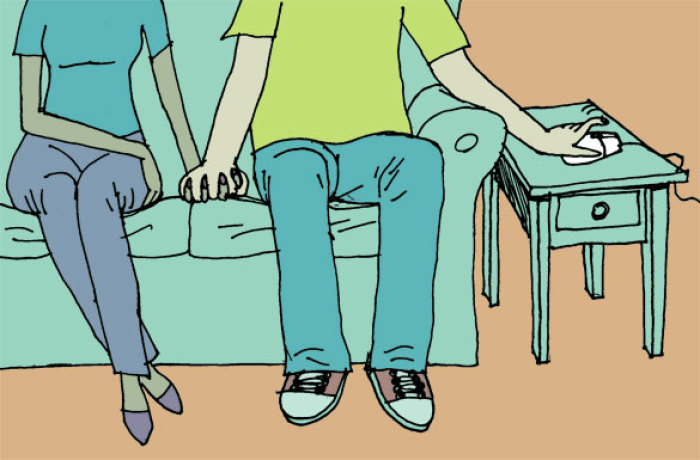5 Tips to Heal Your Marriage From Pornography

To discover your loved one is an addict can be difficult, but finding out that they are addicted to pornography can put devastating strains on a marriage. While no one enters into a marriage with the intention of causing their spouse pain and heartache, sexual addiction is a real obstacle that threatens even the most stable marriages.
The American Association for Marriage and Family Therapy estimates that more than 12 million people struggle with sexual addiction in the United States, with numbers projected to grow in the coming years. Despite common belief, addiction to sex isn't just about "too much sex." Instead, it's a problem that causes the addict to engage in persistent, escalating patterns of sexual behavior despite increasing negative consequences to themselves and others.
With these five tips and expert advice, however, you'll be able to better cope in your marriage and gain a better understanding of the addiction as a disease.
1. Know The Right Response To Relational Trauma
Learning about your spouse's addiction may spark feelings of betrayal, grief, and resentment. This is completely normal and you can get through this difficult time. This trauma can cause your world to spin and you might find yourself spiraling in a cycle of fear which may lead to things like unhealthy eating, close monitoring of your spouse's behavior and actions, isolation, and even self-harm.
The best way to avoid letting relational trauma threaten your welfare is to lean on a therapist, support group, spiritual leader, close friend or family member for support.
Open up about your feelings, create a recovery plan, and find ways to practice self-care.
2. Self-Care Is Critical
Self-care is critical to your path of healing. The betrayal that comes with pornography and sexual addiction can have lasting negative effects if you don't deal with the trauma properly. Self-care, even setting aside 5 minutes, is essential throughout the recovery process and should never be seen as a selfish act.
Whether you spend this time taking a walk, soaking in a bath, meditating, writing in a journal, or spending time on a hobby, having time to reflect and put yourself first will increase your recovery. The sooner you're able to get into a self-care routine, the easier it will be to understand that you're in no way responsible for the actions of your spouse.
3. Open Communication Is Critical
For many couples, opening lines of communication and discussion is one of the most difficult steps in recovery because the initial process can be uncomfortable and embarrassing. By working with a trained therapist and through group support, you'll find that once you break that initial barrier, communication comes easier and you'll both become more comfortable despite conversation topics.
Always remember that the most important thing you can do when communicating with your spouse is to speak directly from your perspective. For example, say in a non-aggressive way, "When _____ happened, it made me feel ______." You'll be heard better without an accusing tone and you'll automatically speak from a place of honesty.
4. Create Your Own Recovery Plan
Throughout the addiction recovery process, your spouse will be designing, implementing, and following a strict recovery plan that helps them maintain boundaries and hold themselves accountable. Though you may not be receiving treatment, you should make a similar plan for yourself. Set your own boundaries, write in a journal, or learn a new hobby or skill.
Carve out time for yourself everyday and be compassionate with yourself no matter how hard it is. Remember that you're also dealing with an array of emotions and you need to take the time and steps necessary to fully heal.
5. Be Supportive
Lastly, be supportive of your spouse. As hard as it may be at first, and though it will take time, try to be as supportive as possible without forsaking any of your personal recovery or boundaries. Remember that they, too, are healing and the process of rebuilding that trust will take a considerable amount of time. If and when giving support gets tough remember these few affirmations.
I replace my anger with understanding and compassion. I chose forgiveness.
I draw from your inner strength and light and take each day at a time, just as your spouse is doing in treatment.
I and (your spouse) are better and stronger people from the hardships that we've been presented with.
Want more information about dealing with pornography addiction and finding the strength to heal? Download Lifestar Therapy's free ebook, The First Step: Taking the First Step Towards Recovery for more tips to help you and your spouse during this difficult time.




























